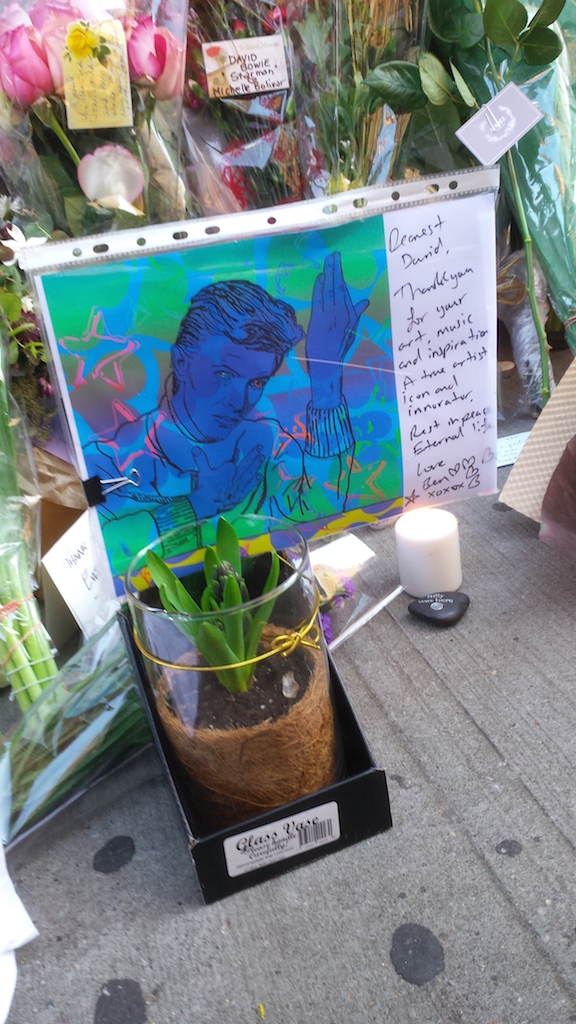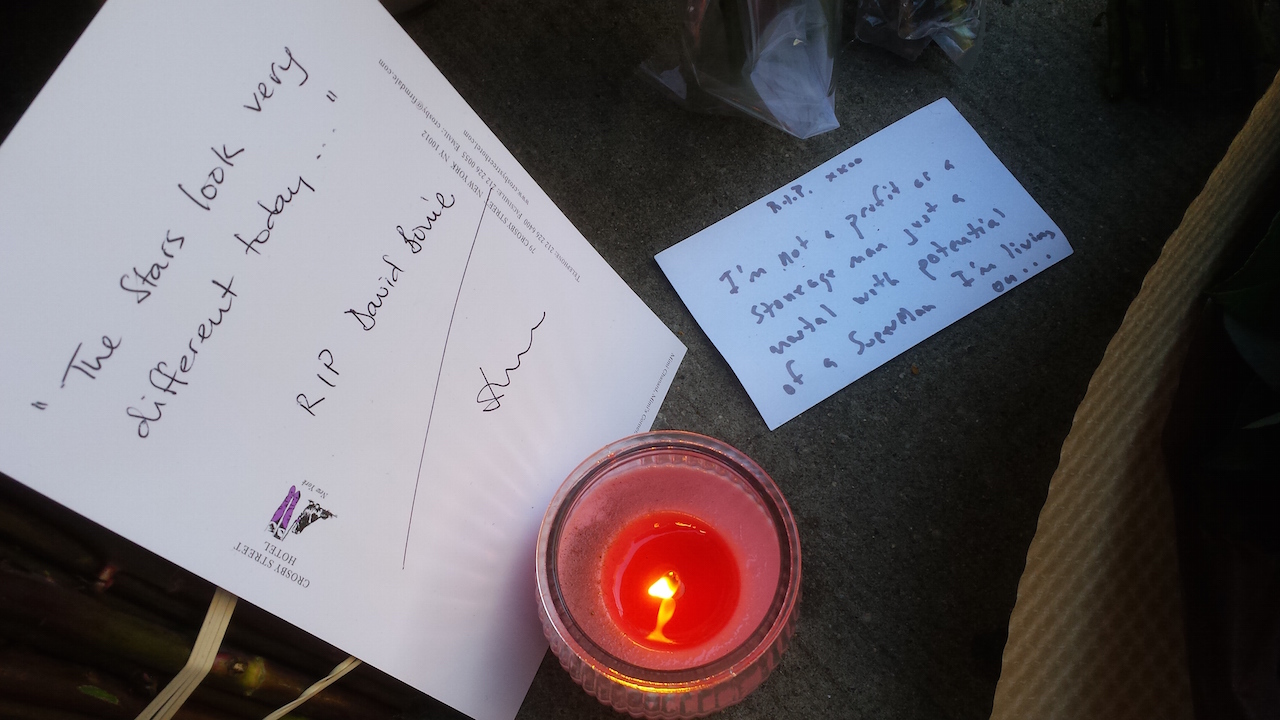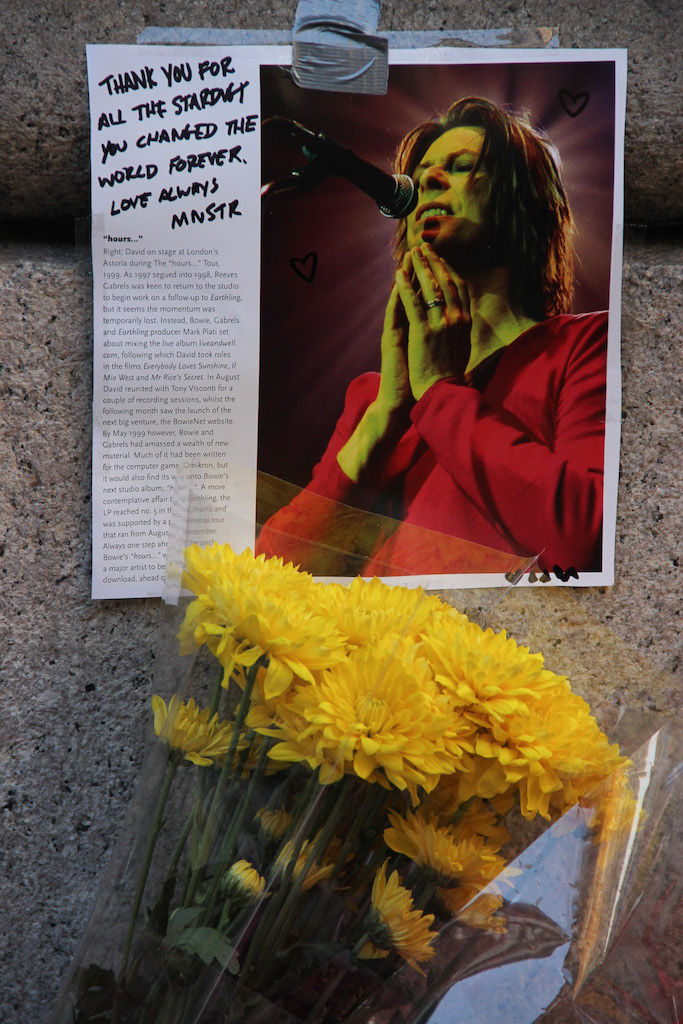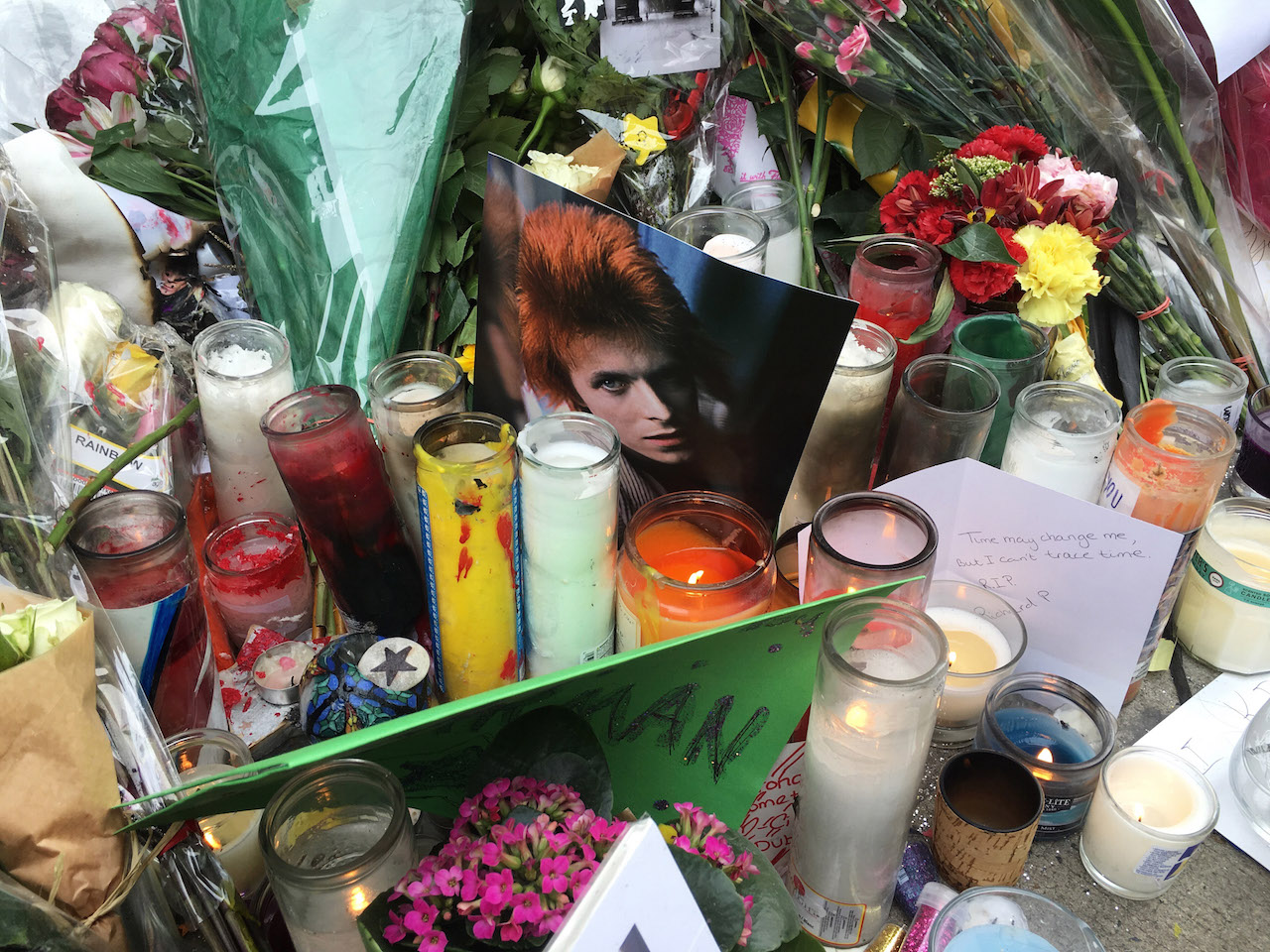
BY LINCOLN ANDERSON | Alison Dalton was walking down Lafayette St. carrying a bouquet of rust-orange roses, heading to the memorial in front of David Bowie’s building. Although no tears came from her eyes, she appeared as if crying.
“They’re the color of ‘Aladdin Sane,’” she said of the flowers, referring to Bowie’s 1973 album. “He had a lightning bolt that color on his face.”
The superstar singer died early Sunday in London at age 69 after an 18-month battle with liver cancer. Along with his wife, the model Iman, he had lived at the Soho address since 1999.
Asked what Bowie meant to her, Dalton, 59, said, “He was always, in his way, completely honest about what he was going through.”
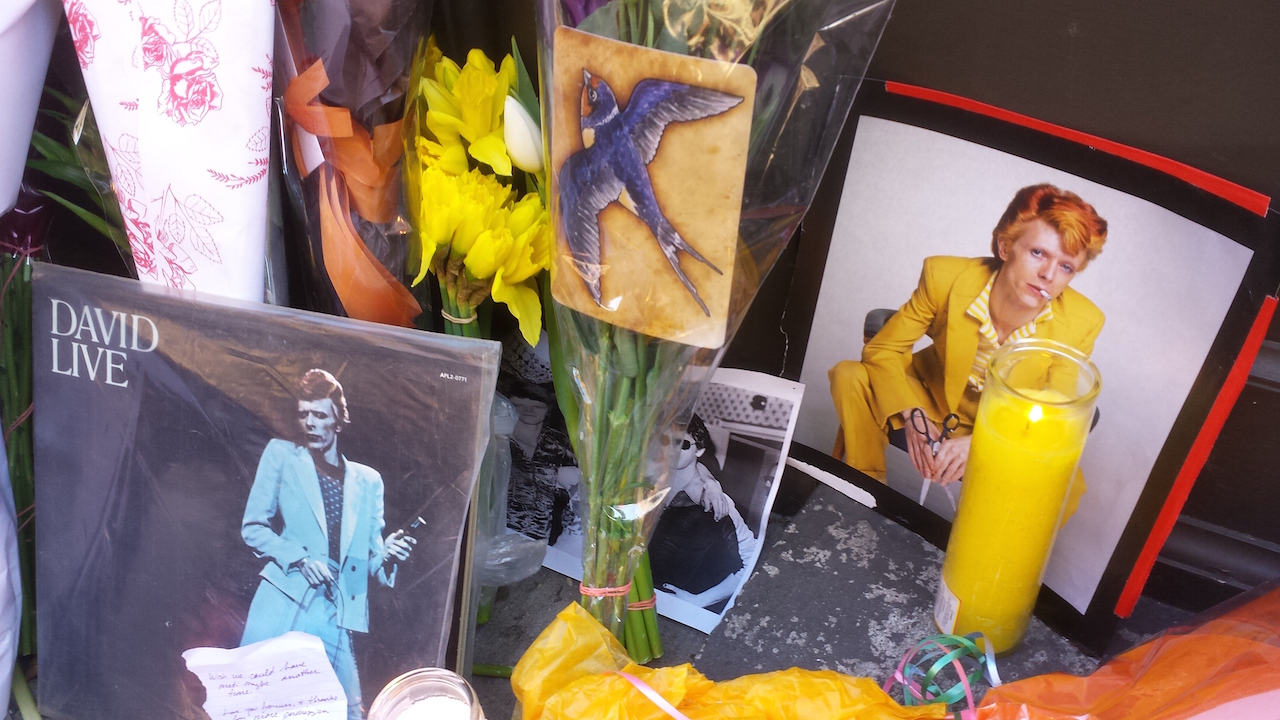
She added her flowers to the memorial, which included cards with “Aladdin Sane” lighting bolts and stars for Starman, a “David Live” album cover, photos of Ziggy Stardust and the Thin White Duke, notes with his famous song lyrics, like “The stars look very different today” and personal notes, like “Love you forever + thanks for more permission to be a weirdo. I hope your crazy space adventure is hella fun.”
Similarly, others who came to pay their respects at the memorial in front of 285 Lafayette St. said Bowie’s openness about his ambiguous sexuality, along with his ever-changing stage personas, gave them the courage to embrace their own uniqueness.
And of course Bowie’s music was amazing. His anthems, from “Space Oddity” and “Changes” to “Heroes” to “Let’s Dance,” were the sounds for generations of people’s lives.
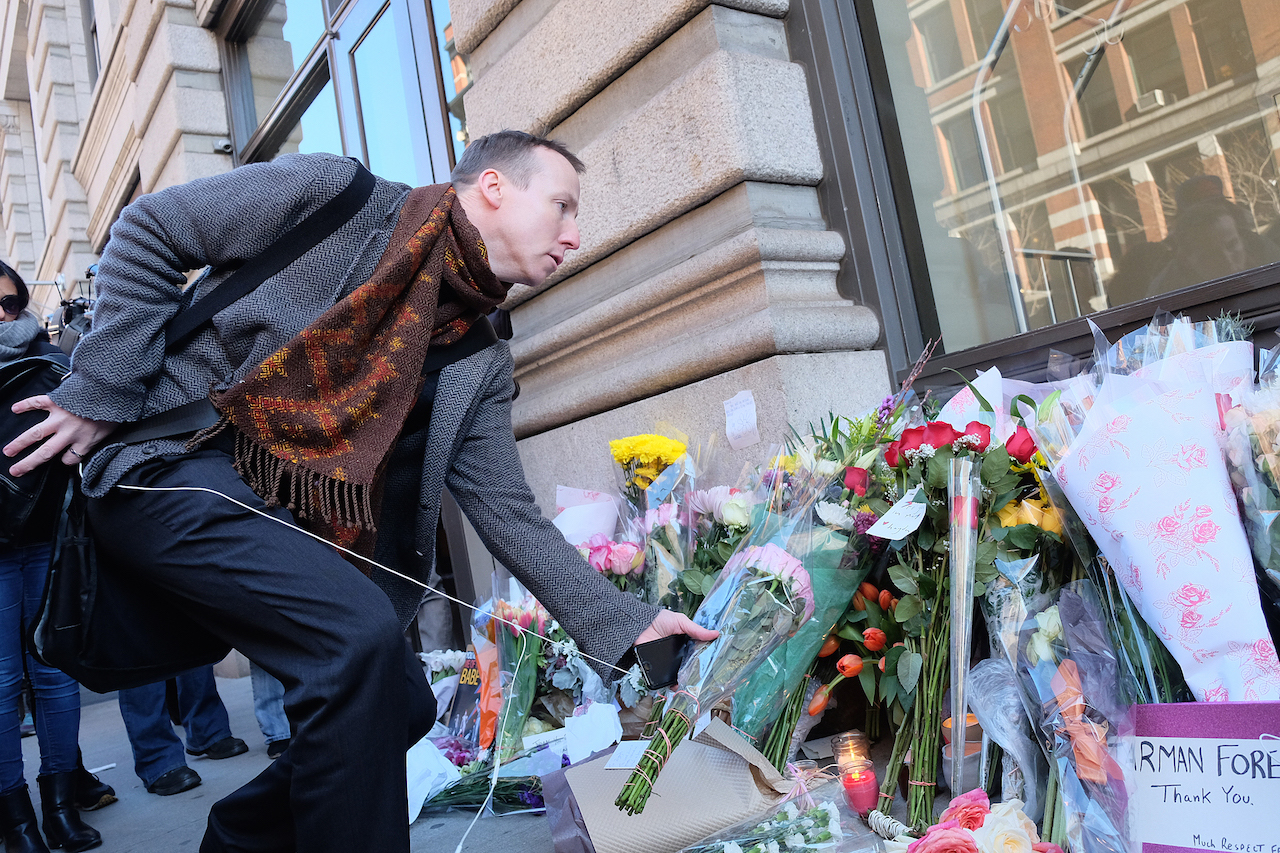
Asked what Bowie was like, a doorman at the tony building said the Starman was actually always very grounded.
“He was a wonderful man, very down to earth,” the doorman said, declining to give his name. “He will be sorely missed.”
Asked if Bowie had a rock-star ego, he said, “Not at all.”
Also among those gathered outside the building was Nikki Sinclaire, 47, who hails from Bowie’s home burg of Brixton, in London. Wrapped in an oversized Alexander McQueen Queen Elizabeth / Union Jack scarf, she was Europe’s first transgender politician.
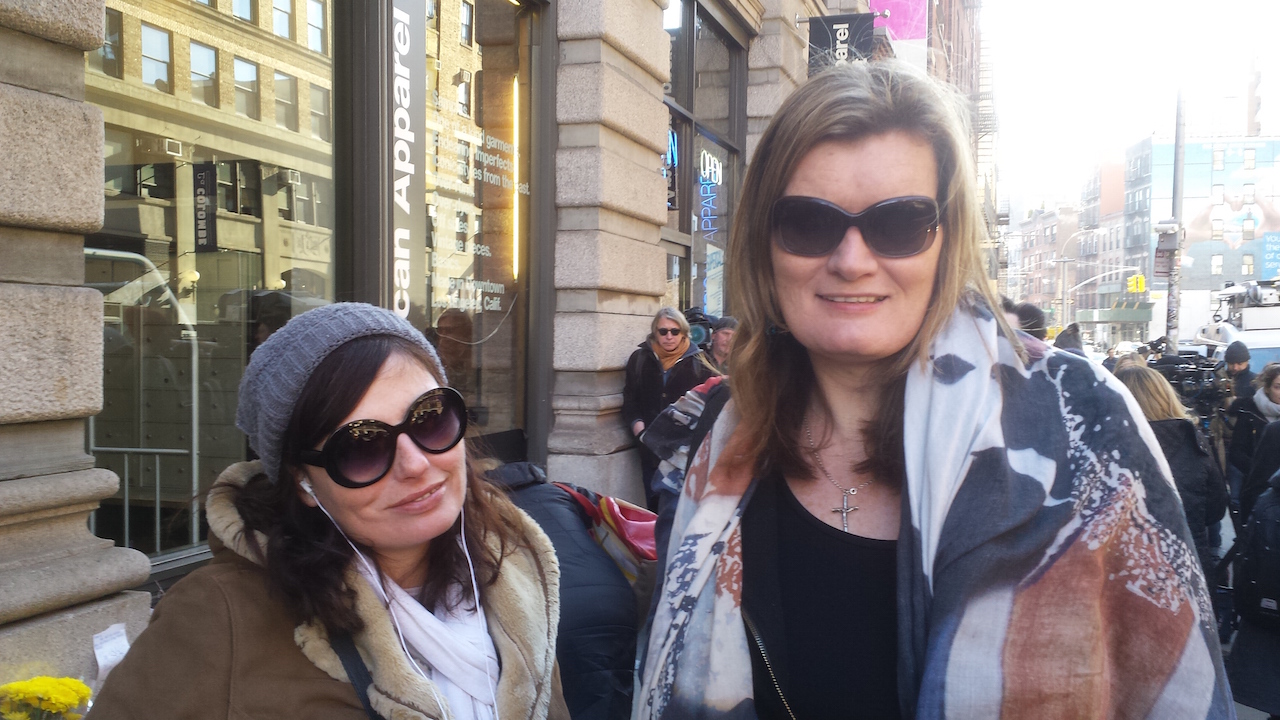
“His music was a big soundtrack of that era,” she said. “I grew up gay / transgender and his music kind of made ‘different’ O.K. You’d have no Boy George, no George Michael without David Bowie. He pushed the boundary and made it O.K. He has culturally made changes politicians could only dream of making.”
As for Bowie’s sexuality, she said, “I’m not sure what it was at the end of the day. I don’t think for Bowie it mattered.”
A man pointed to the “David Live” album propped up in front of the burgeoning pile of flowers.
“Best live album ever — from start to finish,” he announced to the crowd. “I just wanted everyone to know that.”
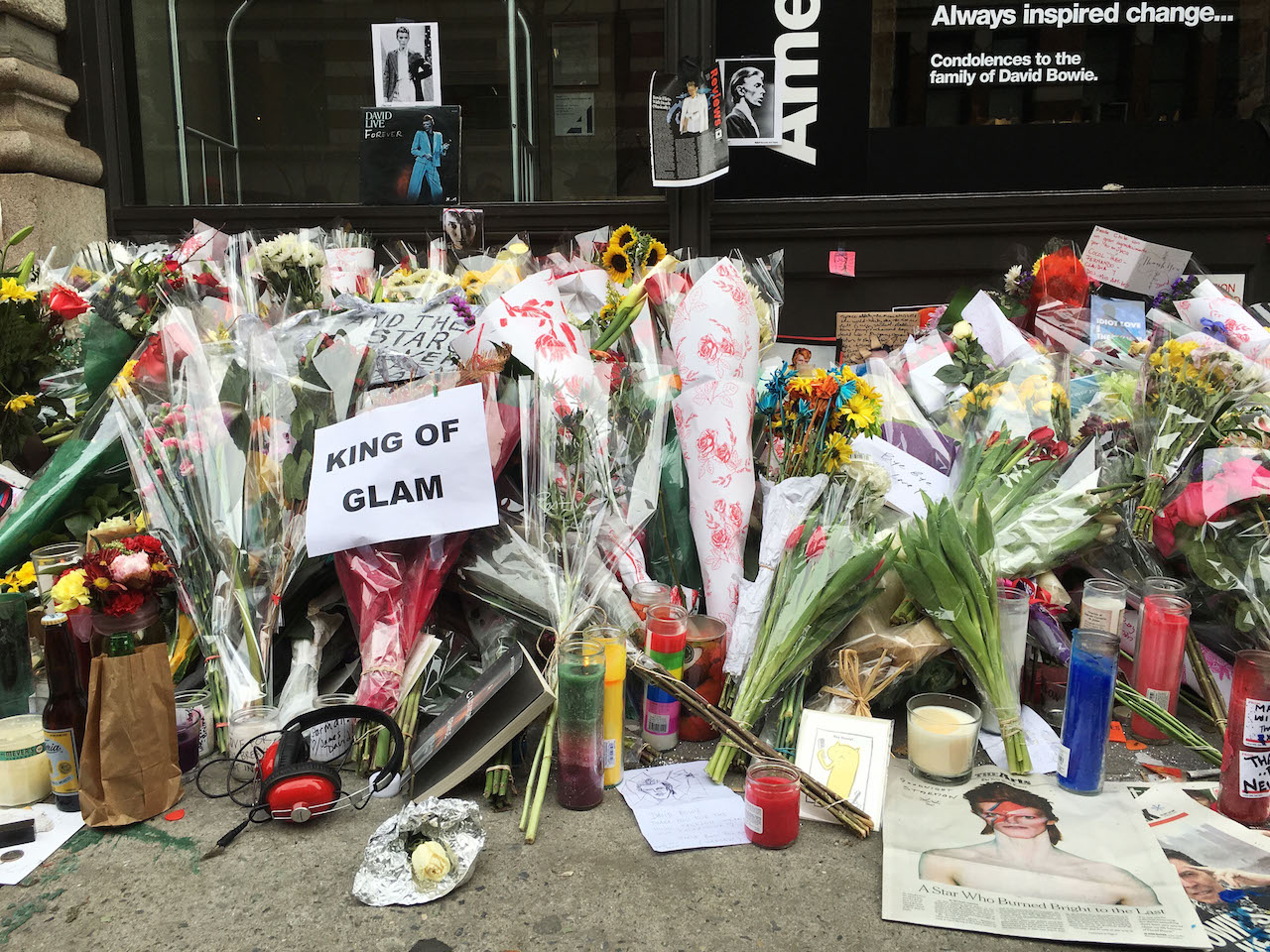
The singer shopped for food at Dean & DeLuca and got sandwiches and chocolate chip cookies at Olives on Prince St., the New York Post reported. Sean Sweeney, director of the Soho Alliance, said he once saw him about a dozen years ago having breakfast in Puck Fair bar, on Lafayette St., looking a bit worn out.
Bowie performed in the May 2002 concert in Battery Park City that was part of the first Tribeca Film Festival to boost Downtown after 9/11.
